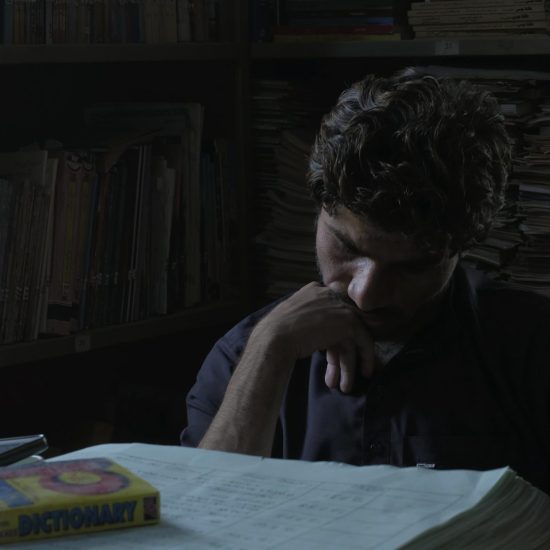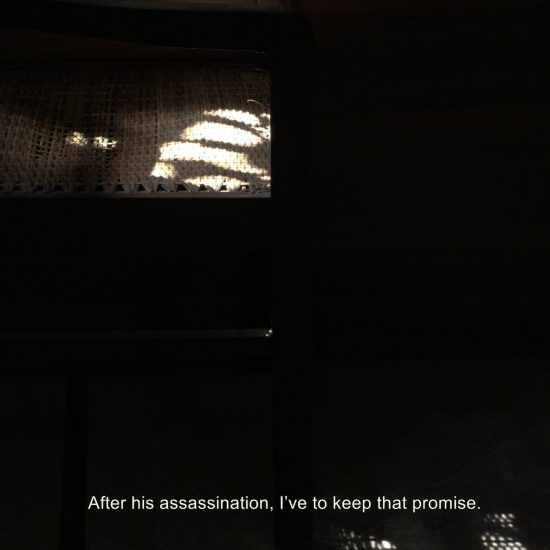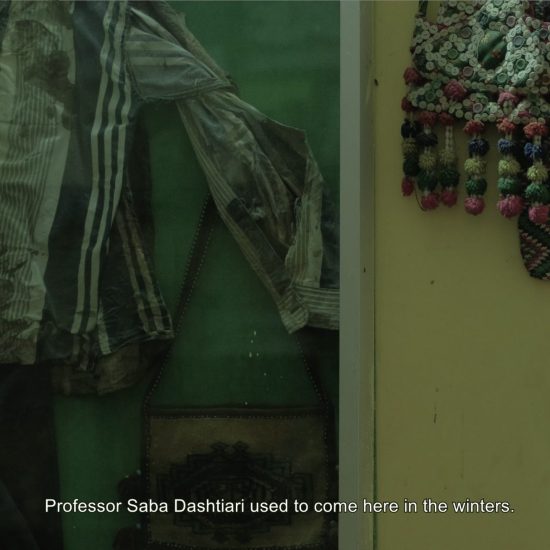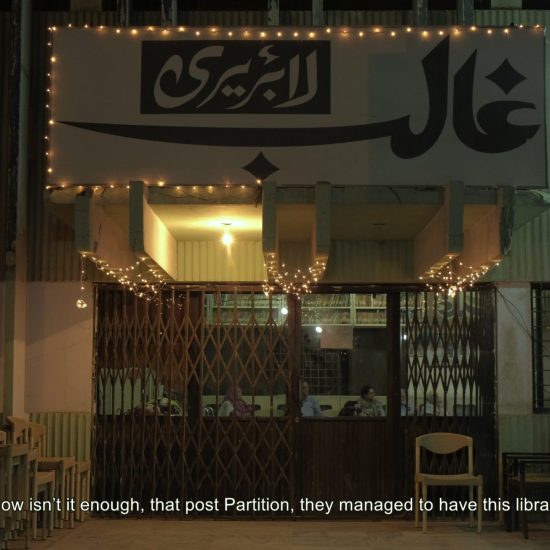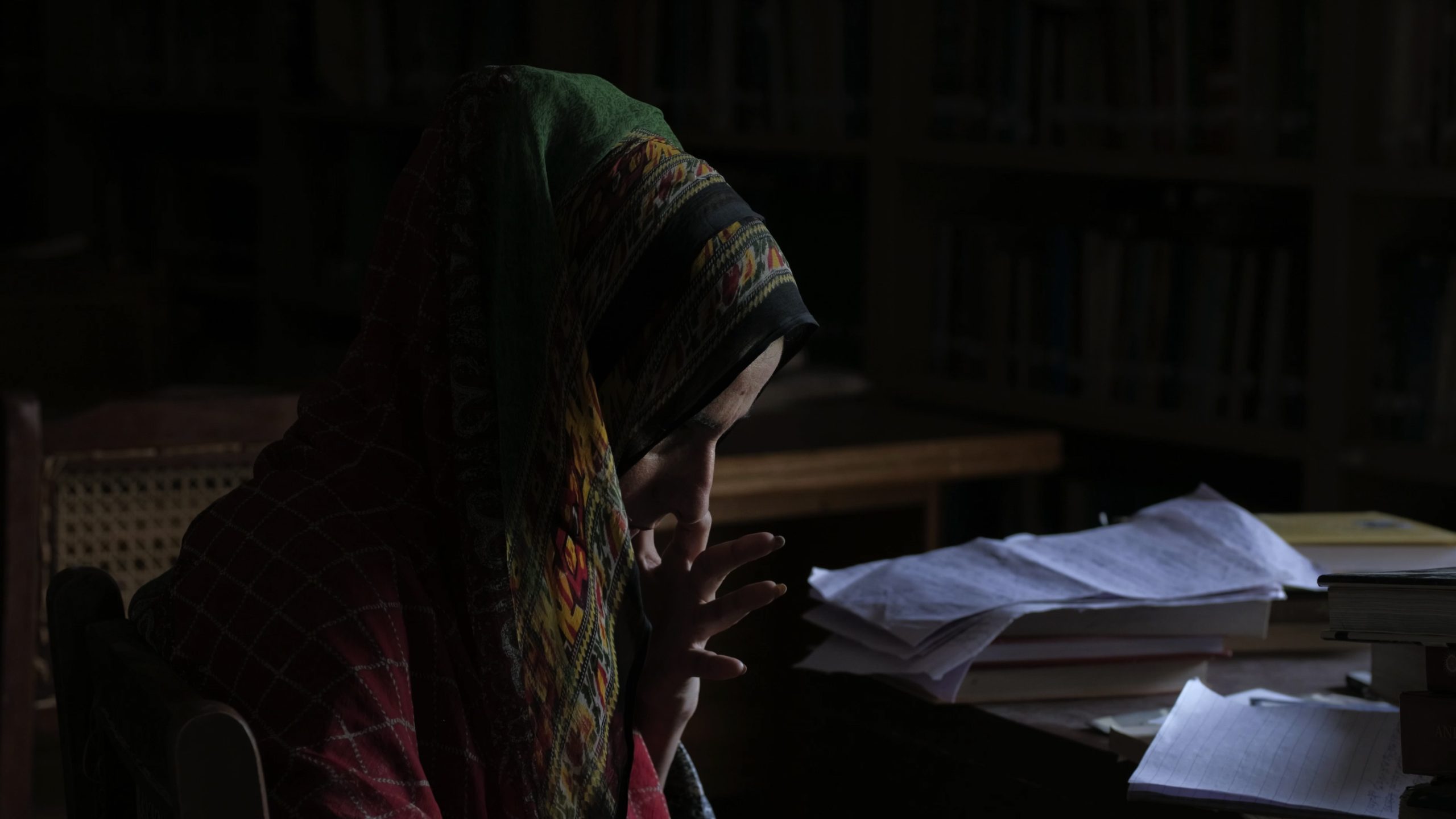
These Silences Are All The Words
Madiha Aijaz
Madiha Aijaz’s video These Silences Are All The Words explores the locations of three neglected libraries in the city of Karachi, Pakistan. In careful, slow, and nuanced ways, Aijaz investigates the politics of language and culture, the production and dissemination of knowledge, and the simultaneous militarization, surveillance and repression of these sites. Aijaz reflects on the changing and increasingly divisive landscape of Karachi by activating these alternative spaces and archives of cultural debris, which refuse and resist the state’s manipulation of time, history and language. She makes us aware of the hidden rhythms, affective histories, and intimate relationships of being and belonging that do not follow official dictates. While governments and military-states alike have used the pandemic to silence dissent and tighten their grip on cultural spheres, Aijaz’s video returns us to the slower, durational forms of violence that have marginalized alternative spaces of radical knowledge production in the city in the decades leading up to our present moment. Through a focus on these sites and accompanying practices of bodily inhabitance, Aijaz traces the continuities, slippages, and tensions among past, present, and future.
Madiha Aijaz (b. 1981, Karachi, Pakistan, d. 2019) was a filmmaker and photographer, whose practice explored how pleasure and entertainment are experienced in public spaces. She photographed railways, devotional towns and public libraries, studying spaces and communities that have become peripheral to civic life, but which by tenacity and chance continue to survive. Her book on Hindu temples, Call to Conscience was published in 2014. Aijaz was an Assistant Professor at the Indus Valley School of Art and Architecture and received an MFA in Photography from Parsons with a Fulbright Scholarship.
Shahana Rajani is an artist and curator based in Karachi. Her work and research trace the emerging visualities and infrastructures of development and militarisation using interdisciplinary methods and media. She is a co-founder of Karachi LaJamia, an experimental project seeking to politicise art education and explore new radical pedagogies and art practices. She also has a collaborative publishing practice with Zahra Malkani andAbeera Kamran called Exhausted Geographies that explores the relationship between image, text and the city. She is an Assistant Professor in the Liberal Arts Programme, at the Indus Valley School of Art and Architecture Karachi.
Notes for Tomorrow is a traveling exhibition organized and produced by Independent Curators International (ICI) and initiated by Frances Wu Giarratano, Jordan Jones, Becky Nahom, Renaud Proch, and Monica Terrero. The exhibition was made possible with the generous support of the Andy Warhol Foundation for the Visual Arts, VIA Art Fund and ICI’s Board of Trustees and International Forum.![]()
![]()
![]()
We are on Treaty 1 Territory. Plug In ICA is located on the territories of the Anishinaabeg, Cree, Oji-Cree, Dakota, and Dene peoples, and the homeland of the Métis Nation.
Plug In ICA extends our heartfelt gratitude to our generous donors, valued members, and dedicated volunteers. We acknowledge the sustaining support of our Director’s Circle. You all make a difference.
We gratefully acknowledge the support of the Canada Council, the Manitoba Arts Council and Winnipeg Arts Council. We could not operate without their continued financial investment and lobbying efforts.
Plug In ICA relies on community support to remain free and accessible to all, and enable us to continue to present excellent programs. Please consider becoming a member of Plug In ICA and a donor at https://plugin.org/support or by contacting Erin at erin@plugin.org.
For more information on public programming and exhibitions contact Allison Yearwood at allison@plugin.org.
For general information, please contact: info@plugin.org or call 1.204.942.1043



